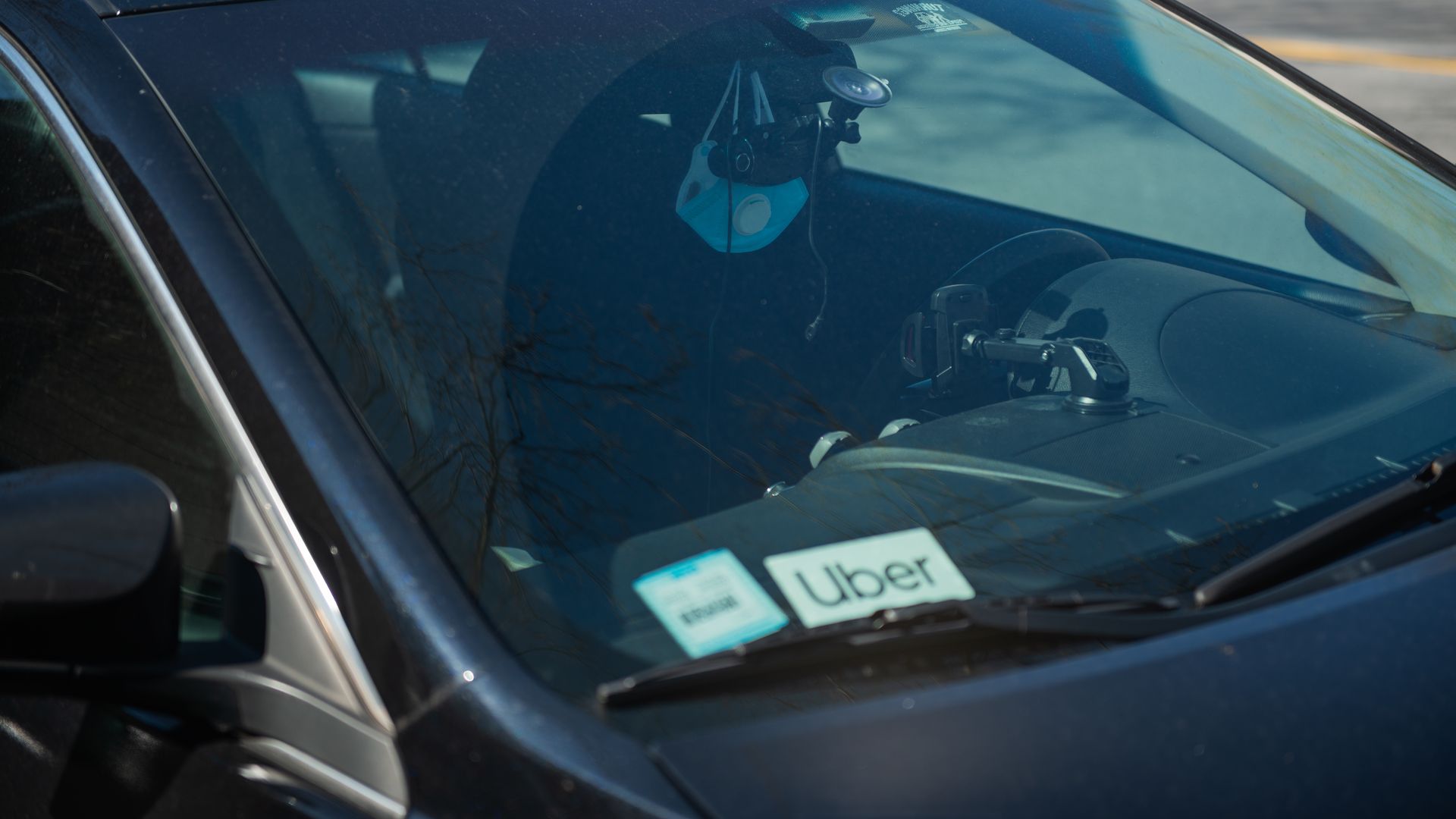Uber and San Francisco tangle over food delivery pricing
Add Axios as your preferred source to
see more of our stories on Google.

Photo: Smith Collection/Gado/Getty Images
Uber looks like it's playing hardball again — this time in a conflict with the city of San Francisco over food delivery fees.
What's happening: In response to an order from the San Francisco mayor capping the fees delivery services can charges restaurants, Uber's food delivery business announced Friday it would no longer serve residents of the city's Treasure Island neighborhood, saying it's no longer able to finance those operations.
Context: Uber made its reputation sparring with city governments, but in recent years has learned to moderate its approach during crises.
- The company let ride-hailing prices in New York City surge due to high demand as Hurricane Sandy hit the city in 2012. Following immediate and intense backlash, it then doubled driver earnings while charging passengers standard fares until the storm was over.
- In 2014, the company settled with New York’s attorney general, agreeing to cap surge pricing during natural disasters and emergencies there and nationwide. It has broadly avoided fights with officials over crisis pricing ever since.
The San Francisco fight breaks that pattern.
- "Unfortunately ... the restrictions imposed by this order forced us to update our service area to reduce operational costs," a spokesperson said in a statement. "We remain hopeful that the temporary changes that companies were forced to make won't further hurt those that we're trying to help the most during this time: customers, small businesses and delivery people."
- Supervisor Matt Haney, who represents Treasure Island in San Francisco's City Hall, accused the company of shutting out the neighborhood as retaliation for the fee cap.
Between the lines: Unlike a hurricane, which lasts a few days, Uber expects this crisis to go on — and that's likely why it is eager to fight the fee cap, particularly if other cities follow suit.
Our thought bubble: Uber is already a money-losing business, but its effort to keep its losses in check might not win much sympathy given how widespread the economic pain is right now, and how much people depend on delivery services.
Go deeper: The gig economy's coronavirus test
